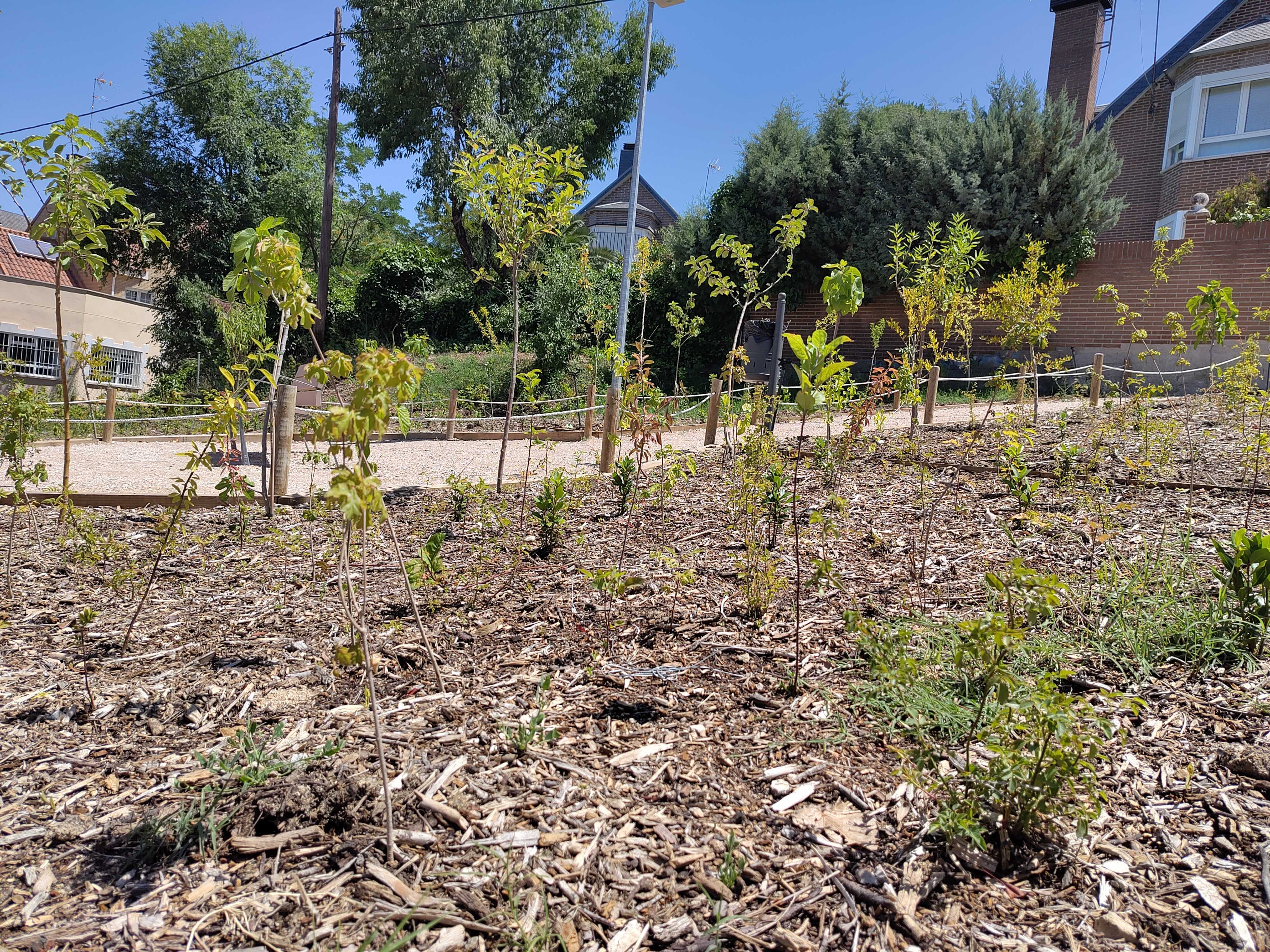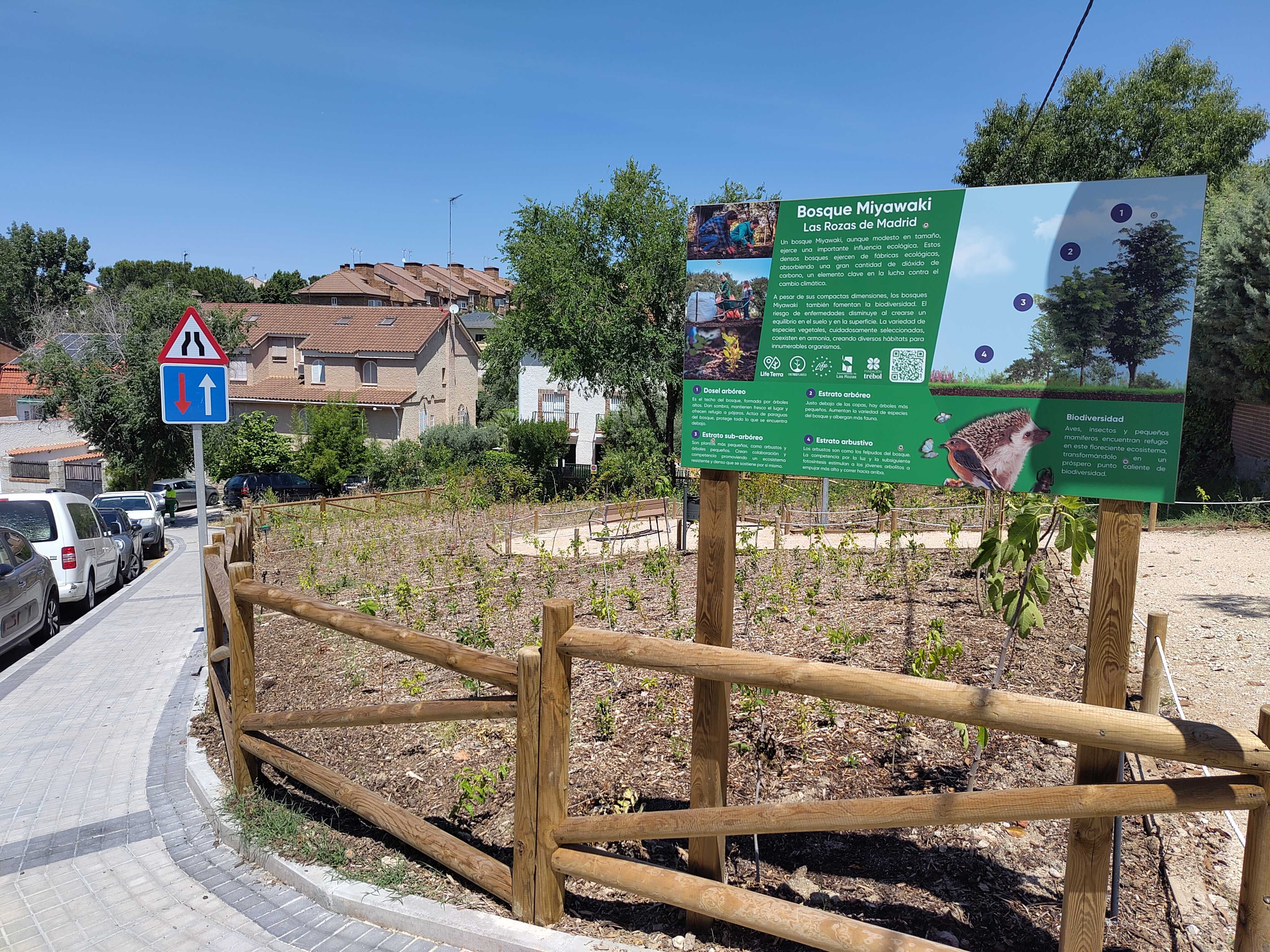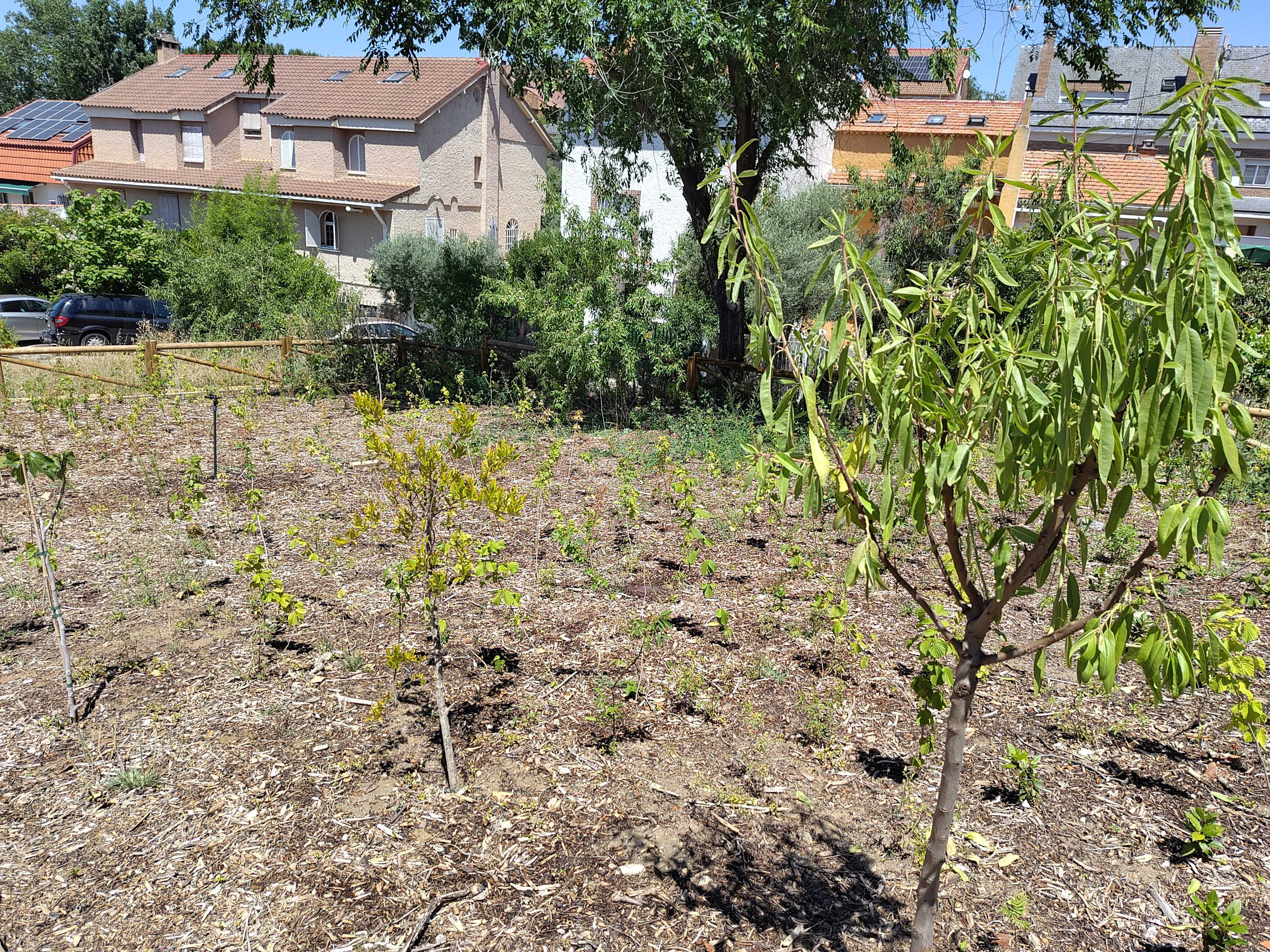Astonishing 80% survival rate of our Miyawaki forest in Las Rozas, Madrid
Miyawaki is a Japanese planting technique that focuses on planting a wide variety of species in very high density to promote competition and enhance fast growth rates. This is done so that only the strongest plants survive and colonize the terrain. Together with proper soil preparation (scarification, organic amendment and mulching), this technique allows for a biodiverse forest to grow in an incredibly short amount of time, reducing restoration efforts from 30-40 years to 5-15 years.
In Life Terra, we have experimented successfully with this technique planting Miyawaki forests in Nice, Toulouse, Madrid and Córdoba. This method is especially useful to restore small urban deteriorated plots, as it creates a vegetation cover very quickly which enhances recreation and scenic values for the neighbours.
One of these Miyawaki urban forests is located in the city of Las Rozas (Madrid, Spain). The implementation happened in January of 2024, with the help of the Las Rozas Municipality, Fundación Trébol and One Tree Planted. Covering more than 500m2, 3.000 plants and 19 different species, this is the biggest Miyawaki in the Community of Madrid.
In June 2024, only 6 months after implementation, we could see astonishing results! The plants had doubled or tripled their size, starting to form a biodiverse forest. Also, the observed survival rate was close to 80%, which is extremely high for this technique.
This proves that the Miyawaki technique is here to stay, as it can provide the expected restoration results.
We will keep applying this method to re-green urban spaces and promote nature-based solutions.


